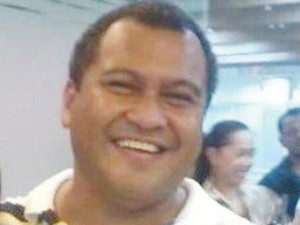DOJ lawyers to start process of Amalilio extradition
MANILA, Philippines – Lawyers from the Department of Justice would fly to Malaysia to formally start the process of extraditing Manuel Amalilio for allegedly swindling 15 million Filipinos of P12 billion in an investment scam, Malacañang said Sunday.
Undersecretary Abigail Valte, deputy presidential spokesperson, debunked reports quoting Malaysian officials as saying that Kuala Lumpur would not extradite Amalilio since he is a Malaysian citizen.
“That’s inaccurate because first of all our state counsels from the DOJ were about to go [to Malaysia] to formally start the extradition process,’’ Valte said over government-run dzRB.
Even though Malaysia has no extradition treaty with the Philippines, Malaysian law allows extradition under “certain processes,’’ Valte pointed out.
In a statement in Malaysia’s Star newspaper Saturday, Attorney General Abdul Gani Patail said Malaysia would not extradite Amalilio, aka Mohammad Kamal, because he is a Malaysian citizen holding a valid and active identification card.
Article continues after this advertisementGani said that the Attorney General’s Chambers had received a formal request from the Philippines’ Department of Justice to hand over Amalilio to the Philippines under the Asean Mutual Assistance in Criminal Matters, and freeze his asset.
Article continues after this advertisementA team of Philippine law enforcers was about to board a plane to Manila with the fugitive on Jan. 25 when they were stopped by senior Malaysian police officials. Amalilio was returned to police custody and subsequently convicted and sentenced for fraud by a Kota Kinabalu court.
Quoting Justice Secretary Leila de Lima, Valte said that Malaysian authorities had frozen Amalilio’s assets.
“The assets have been frozen,’’ she said in the radio interview.
De Lima on Saturday confirmed the freezing of Amalilio’s assets following talks between Philippine officials, including Justice Undersecretary Jose Vicente Salazar and Ambassador Eduardo Malaya, and Gani.
After the meeting in Kuala Lumpur last Wednesday, the Attorney General, who also chairs the high-level task force administering the freezing of assets of suspected criminals in Malaysia, ordered the freezing of Amalilio’s assets, including company shares, stocks and land assets, De Lima said.
“We made a formal request for such freezing and other forms of assistance under the Asean MLAT,’’ De Lima said.
After the talks, both parties agreed that the Philippines could have Amalilio extradited to Manila even before he could fully serve his two-year sentence, and that pending his extradition, he would be kept in jail, and both sides could work out possible access by Philippine police and prosecutors to him.
